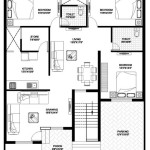Business Plan for Home Care Agency: A Comprehensive Guide
The burgeoning elderly population and the increasing preference for aging in place have fueled the growth of the home care industry. Starting a home care agency can be a rewarding venture, both personally and financially. However, success hinges on meticulous planning and a well-structured business plan. This document serves as a roadmap, outlining the agency's goals, strategies, and operational framework. It is a crucial tool for securing funding, attracting investors, and guiding the day-to-day operations of the business.
A comprehensive business plan for a home care agency should encompass a variety of elements, ranging from market analysis and service offerings to financial projections and operational strategies. Each section requires thorough research and careful consideration to ensure the plan accurately reflects the agency's vision and its potential for success. This article provides a detailed overview of the key components and considerations involved in developing a robust business plan for a home care agency.
Key Point 1: Market Analysis and Competitive Landscape
Understanding the target market and the competitive environment is paramount to the success of any business, and a home care agency is no exception. This section of the business plan should delve into the demographics of the intended service area, identifying the specific needs and demands of the target population. A thorough market analysis provides insights into the potential customer base, the types of services they require, and their ability to pay for those services.
The identification of the target market should go beyond basic demographic data, such as age and income levels. It should also consider factors like the prevalence of specific medical conditions, the availability of family support, and the cultural preferences of the community. This information can be obtained through various resources, including census data, local health departments, and community organizations.
Analyzing the competitive landscape involves identifying existing home care agencies in the area and evaluating their strengths and weaknesses. This includes assessing their service offerings, pricing strategies, marketing tactics, and reputation. The goal is to identify potential competitive advantages and develop strategies to differentiate the agency from its rivals. This can be achieved by focusing on niche markets, offering specialized services, or providing superior customer service.
Furthermore, the market analysis should also consider regulatory requirements and industry trends. Understanding the licensing regulations, compliance standards, and reimbursement policies is essential for ensuring the agency operates legally and sustainably. Keeping abreast of industry trends, such as the increasing adoption of technology in home care, can help the agency adapt to changing market dynamics and maintain a competitive edge.
The findings of the market analysis should be clearly presented in the business plan, supported by data and evidence. This section should demonstrate a deep understanding of the market dynamics and the agency's ability to capitalize on opportunities and address challenges.
Key Point 2: Service Offerings and Operational Plan
Defining the services offered by the home care agency is a crucial step in developing the business plan. This section should outline the range of services provided, the target clients for each service, and the pricing structure. The services offered can be categorized into two main types: non-medical home care and medical home care (also known as home health care).
Non-medical home care includes assistance with activities of daily living (ADLs), such as bathing, dressing, eating, and toileting. It also encompasses companionship, homemaking services (e.g., light housekeeping, meal preparation, laundry), and transportation assistance. These services are typically provided by certified nursing assistants (CNAs) or home health aides.
Medical home care, on the other hand, involves skilled nursing care and other medical services, such as medication administration, wound care, and physical therapy. These services are typically provided by registered nurses (RNs), licensed practical nurses (LPNs), and therapists. Medical home care often requires a physician's order and may be covered by Medicare or private insurance.
The business plan should clearly specify which services the agency will offer and the qualifications of the staff providing those services. It should also outline the agency's policies and procedures for providing care, including client assessment, care planning, and ongoing monitoring. This section should demonstrate a commitment to providing high-quality, client-centered care.
The operational plan details the day-to-day operations of the agency, including staffing, scheduling, training, and quality assurance. It should outline the organizational structure of the agency, defining the roles and responsibilities of each team member. This includes administrative staff, caregivers, and supervisors.
The scheduling process should be clearly defined, including how client needs are matched with caregiver availability and how schedules are managed and adjusted. The training program should address both initial training and ongoing education, ensuring that caregivers are equipped with the skills and knowledge necessary to provide safe and effective care. The quality assurance program should outline the methods used to monitor the quality of care provided and address any issues or concerns.
Furthermore, the operational plan should address technology utilization. The agency should consider implementing software solutions for scheduling, billing, and electronic health records (EHRs). Technology can streamline operations, improve efficiency, and enhance communication among staff and with clients.
Key Point 3: Financial Projections and Funding Request
The financial section of the business plan is crucial for demonstrating the agency's financial viability and attracting potential investors. This section should include detailed financial projections, such as revenue forecasts, expense budgets, and cash flow statements. These projections should be based on realistic assumptions and supported by data from the market analysis and operational plan.
Revenue forecasts should estimate the agency's expected income based on the projected number of clients and the pricing of services. These forecasts should consider factors such as market demand, competition, and reimbursement rates. Expense budgets should outline the agency's anticipated expenses, including salaries, rent, utilities, marketing, and insurance. These budgets should be realistic and based on thorough research.
Cash flow statements project the agency's cash inflows and outflows over a specific period, typically one to three years. These statements are essential for identifying potential cash flow problems and developing strategies to address them. A positive cash flow is crucial for ensuring the agency can meet its financial obligations and sustain its operations.
The financial section should also include a break-even analysis, which determines the level of revenue required to cover all expenses. This analysis helps to assess the agency's financial risk and identify strategies to improve profitability. Key financial ratios, such as profit margins and return on investment, should also be included to demonstrate the agency's financial performance.
If the agency is seeking funding, the business plan should clearly state the amount of funding required and how it will be used. This section should also outline the terms of the funding request, such as the interest rate, repayment schedule, and collateral. It is essential to present a compelling case for why the agency deserves funding and how it will generate a return on investment for investors.
The financial projections should be presented in a clear and concise manner, using tables and graphs to illustrate the data. They should be supported by realistic assumptions and thoroughly documented to ensure their credibility. A well-prepared financial section demonstrates the agency's financial acumen and its ability to manage its finances effectively.
Beyond these key points, the business plan also needs to include an executive summary, which provides a brief overview of the entire plan. It should highlight the agency's mission, goals, and key strategies. A management team section should detail the experience and qualifications of the individuals responsible for managing the agency. This section should emphasize the team's expertise and their commitment to the success of the business.
Finally, the appendices should include supporting documents, such as market research data, licenses, permits, and insurance policies. These documents provide evidence to support the claims made in the business plan and demonstrate the agency's compliance with regulatory requirements.
Developing a comprehensive business plan is an iterative process that requires ongoing review and refinement. As the agency evolves and the market changes, the business plan should be updated accordingly. A well-maintained business plan is a valuable tool for guiding the growth and success of the home care agency.
The process of creating a business plan also encourages the entrepreneur to thoroughly analyze the market, the competition, and their own capabilities. This helps to identify potential pitfalls and develop strategies to overcome them. The business plan serves as a valuable tool for attracting investors, securing funding, and guiding the agency's operations.
In conclusion, a well-structured and comprehensive business plan is essential for launching and growing a successful home care agency. By addressing the key elements outlined in this article, aspiring home care entrepreneurs can increase their chances of success and make a positive impact on the lives of those they serve.

Must Have Home Care Business Plan Template With Samples And Examples

5 Steps To Start A Successful Home Care Agency Infographics Caretap

Home Health Care Business Plan Template In 1 Day

Home Care Business Plan Template Sample Page Honest Plans

Ppt How To Start Your Own Home Care Agency Powerpoint Presentation Free Id 13452530

What S In Our Home Health Care Agency Business Plan Template By Paul Borosky Mba

Home Care Business Plan Template Marketing Financial Projections Guided Sections Company Policies Goal Planner Edit Print

10 Days Of Home Care Creating A Business Plan For Your Agency Day 5

How To Start A Home Care Agency Business

Home Care Business New Client Folder Professional Editable Templates Personal Agency Forms Insert Logo Ms Word Documents Printable








